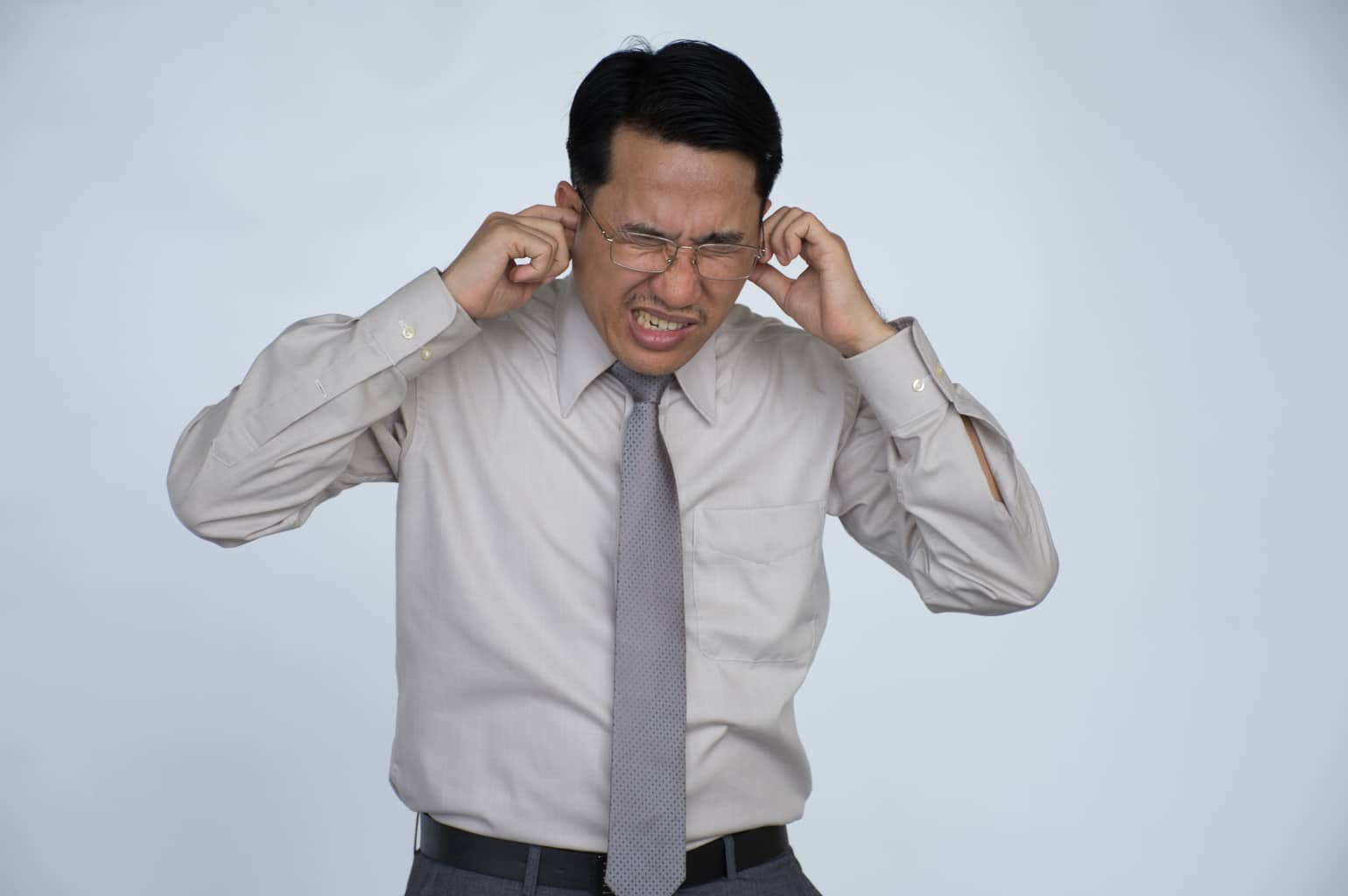
[cmamad id=”9295″ align=”center” tabid=”display-desktop” mobid=”display-desktop” stg=””]
Few people would argue that our sense of hearing is very important.
We use it to listen as we talk with other people and communicate.
It’s critical to how we learn.
And it allows us to derive enjoyment from music.
Plus, it can alert us to potential dangers in all sorts of situations, whether walking down a street, driving a car.
So problems with hearing can cause problems in several areas of your life.
One specific problem that causes hearing issues is tinnitus.
Tinnitus is different from the regular hearing loss in that you hear something that isn’t in the real world.
Most people describe it as a ringing in the ears.
To some people, it may sound more like static.
Tinnitus can be a sound that a person hears all the time, or it could be intermittent, coming and going.
Or, a sound in the environment can trigger it as well.
It can mimic hearing loss, by blocking or masking sounds from the real world.
A person might also ignore certain sounds from the world mistaking them as part of the ringing they hear.
[cmamad id=”9296″ align=”center” tabid=”display-desktop” mobid=”display-desktop” stg=””]
People with tinnitus can often become very stressed by it.
Imagine constantly hearing a sound that isn’t really there!
Tinnitus usually results from being around really loud sounds.
Something like a rock concert or a room with heavy machinery can cause the damage.
It can also be caused by constant quieter sounds very close to the ear, like frequently using headphones.
So, we know there are plenty of potential environmental causes.
And knowing that tells us how to prevent tinnitus.
That just leaves treating those who already have the damage.
There are many medical treatments available, but most come with potential side effects.
But what if you can treat tinnitus with nutrition and diet?
Today’s study suggests that this is possible.

Researchers conducted this study on rats.
Sometimes, it’s better to conduct a study with rats, as researchers can have more control over variables.
Here, they took one group of rats and exposed them to very loud sounds.
They also had a group of rats that did not have exposure to this loud sound.
Afterward, they tested these rats responses to normal sounds.
The group exposed to loud sounds didn’t react to as many sounds as the control rats.
This indicated the rats in the loud sound group had developed tinnitus.
The researchers then gave the rats supplemental taurine.
Taurine is an important amino acid that the researchers suspected was important in hearing.
As it turned out, the rats exposed to loud sounds did have an improvement when taking the taurine.
For some sound frequencies, taurine improved the rat’s hearing to normal.

When the researchers took the additional taurine out of the rat’s diet, they appeared to suffer from tinnitus again.
When they added back the taurine again, the rat’s hearing once again improved.
This finding means the rat’s needed additional taurine, once their hearing was impaired.
The taurine didn’t reverse the damage, but it DID reverse the impact the damage had.
So, how can you apply this in your own life?
Well, first, it’s best to minimize your exposure to loud noises.
If you are going to be in a loud environment, such as a rock concert, it’s important to use hearing protection like ear plugs.
It is also best to minimize using headphones and use them at very low volume levels when you do.
You should try to get more taurine in your diet.
High protein sources like meat, milk, cheese, and eggs naturally contain a fair amount of taurine.
However, it is a heat sensitive protein so it may also be wise to use it as a supplement.
You can also purchase taurine as a bulk powder or as pills or tablets.
Taurine is also important for digestive juices, so it is best to start off with a low dose and work up to higher amounts.
Suddenly taking a lot of taurine can lead to some unpleasant digestive effects!
Of course, if you have more serious hearing problems, you should always consult with your doctor.
So, can your hearing improve after tinnitus damage? It can.


Leave a Reply